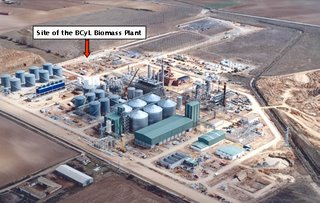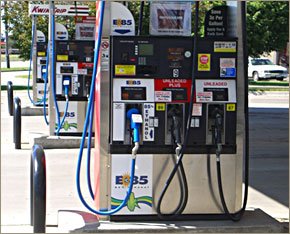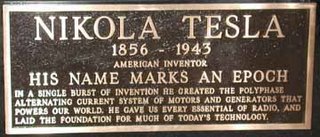Dubya's cellulosic ethanol nearer than you think
 22nd Annual International Fuel Ethanol Workshop & Expo (FEW) June 20-23, 2006 Midwest Airlines Center Milwaukee, Wisconsin USA. Is an increasingly important forum for u nderstanding the development of biomass fuel technology.
22nd Annual International Fuel Ethanol Workshop & Expo (FEW) June 20-23, 2006 Midwest Airlines Center Milwaukee, Wisconsin USA. Is an increasingly important forum for u nderstanding the development of biomass fuel technology.
The FEW Program is developed by a committee of current and future ethanol producers.
Program topics will have a strong focus on commercial-scale ethanol production, new technology, and near-term research and development. Over 80 companies are exhibiting, one Gold Sponsor is the Danish Compant Novozymes. Leaders in production of industrial enzymes.
They have a fascinating tale to tell of their work on converting cellulosic material which Dubya referred to in his speech earlier this year in future fuel technologies. "The Administration will accelerate research in cutting-edge methods of producing "cellulosic ethanol" with the goal of making the use of such ethanol practical and competitive within 6 years." President Bush announced the creation of an Advanced Energy Initiative (AEI) that calls for reducing oil imports from the Middle East by 75 percent by the year 2025.
In January 2001, supported by funds from the U.S. Department of Energy (DOE), Novozymes ( a Dansih Company and world's largest enzyme supplier) and the National Renewable Energy Laboratory (NREL) entered into a collaborative research subcontract totalling USD 14.8 million over three years, with a one-year extension worth USD 2.3 million granted in April 2004.
The project sought to dramatically cut the cost of converting cellulose biomass from corn stover into sugars for the production of fuel ethanol and other valuable products. Once commercially viable, a process of this type could help reduce deendency on non-renewable and petroleum-based energy and raw material sources. As a result, Novozymes have dramatically cut the cost for the process of converting corn stover to ethanol to USD 0.10-0.18 per gallon in laboratory trials. This 30-fold reduction from the starting point of more than USD 5 dollars per gallon in 2001 is due to a combination of pre-treatment technology developed by NREL and novel enzyme solutions from Novozymes. (Current sale price of US preoduced ethanol is US$2.85)
As a result, Novozymes have dramatically cut the cost for the process of converting corn stover to ethanol to USD 0.10-0.18 per gallon in laboratory trials. This 30-fold reduction from the starting point of more than USD 5 dollars per gallon in 2001 is due to a combination of pre-treatment technology developed by NREL and novel enzyme solutions from Novozymes. (Current sale price of US preoduced ethanol is US$2.85)
"Novozymes has made great progress in reducing the cost of enzymes for the utilisation of cellulosic biomass, effectively eliminating a major technical barrier to commercialisation. By combining NREL improvements to the pre-treatment of corn stover with new enzymes developed by Novozymes, the cost reduction achieved provides an excellent example of the synergy that can be harvested through well-placed government-sponsored research partnerships. While much work remains to translate this success to the commercial marketplace, Novozymes should be applauded for their fine efforts in this collaboration," said Douglas E. Kaempf, Biomass Program Manager at the U.S. Department of Energy says , ""Novozymes has made great progress in reducing the cost of enzymes for the utilisation of cellulosic biomass, effectively eliminating a major technical barrier to commercialisation"
Douglas E. Kaempf, Biomass Program Manager at the U.S. Department of Energy says , ""Novozymes has made great progress in reducing the cost of enzymes for the utilisation of cellulosic biomass, effectively eliminating a major technical barrier to commercialisation"
The work also opens up other opportunities, for example corn stover may in future be used as a feedstock for products currently derived from petrochemicals.
Successful commercialisation of the biomass-based process for production of fuel ethanol and other useful products still depends on further refinements of the enzyme technology, establishment of a formal collection system for biomass, further progress in overcoming the technical barriers in biomass pre-treatment, optimisation of current yeast organisms, as well as financial incentives for industry to invest in facilities utilising biomass instead of corn starch as feedstock.
"In Europe, we are currently focusing on making specific enzyme blends that will be ideal for different cereals," says Lionel Picart of Novozyme. Wheat and barley are the main cereals used in Europe for processing into fuel ethanol. They contain viscous hemicelluloses such as beta-glucans. When wheat or barley flour is mixed with water, it becomes viscous even before the starch has been gelatinized. This slurry may be almost impossible to pump through a pipe. Apart from the classical liquefaction and saccharification enzymes used for converting starch into fermentable sugars, specific enzymes are required to reduce viscosity and facilitate the operation."We already have enzymes such as cellulases, beta-glucanases and xylanases. Now we are formulating them into efficient and cost-effective products for customers." says Picart.
Gerson Santos, R&D Director at Abengoa Bioenergy, St. Louis Miss. said, "These new enzyme systems are the key to the future growth and geographical expansion of the fuel ethanol industry into areas where cereals are not readily available. In 2006, we expect to initiate testing of Novozymes' enzymes solutions at our biomass fractionation process development pilot plant in York, Nebraska, USA to validate the technology's performance.
As one of the biggest ethanol producers in Europe and the USA (fifth largest producer in the United States with an installed capacity of 365 million liters.), Abengoa Bioenergy is a subsidiary of Abengoa S.A., a company which is headquartered in Sevilla, Spain. Abengoa is a technological company that applies innovative solutions for sustainable development in the infrastructures, environment and energy sectors. It is present in over 70 countries where it operates through its five Business Units: Solar, Bioenergy, Environmental Services, Information Technology, and Industrial Engineering and Construction and is committed to the development and commercialisation of biomass-based fuel ethanol production technology for a more sustainable transportation sector." Abengoa Bioenergy is to demonstrate its biomass-to-ethanol process technology at the BCyL Cereal Ethanol Plant in Babilafuente (Salamanca), Spain. Commissioning is expected to start by the end of 2006; the Biomass Plant will process 70 tonnes of agricultural residues, such as wheat straw, each day and produce over 5 million liters of fuel grade ethanol per year. This will use the technology developed by Canadian company Sunopta Inc. ((NASDAQ: STKL / TSX: SOY) SunOpta Food Group, represents over 90% of annual revenues and is focused on the fast growing natural, organic and specialty foods markets. The SunOpta BioProcess Group represents approximately 1% of revenue and is focused on the processing of biomass for the production of ethanol and other bio-products. The Group has commercially proven proprietary technology with multiple patents on equipment and processes and claims world leadership in biomass conversion.
Abengoa Bioenergy is to demonstrate its biomass-to-ethanol process technology at the BCyL Cereal Ethanol Plant in Babilafuente (Salamanca), Spain. Commissioning is expected to start by the end of 2006; the Biomass Plant will process 70 tonnes of agricultural residues, such as wheat straw, each day and produce over 5 million liters of fuel grade ethanol per year. This will use the technology developed by Canadian company Sunopta Inc. ((NASDAQ: STKL / TSX: SOY) SunOpta Food Group, represents over 90% of annual revenues and is focused on the fast growing natural, organic and specialty foods markets. The SunOpta BioProcess Group represents approximately 1% of revenue and is focused on the processing of biomass for the production of ethanol and other bio-products. The Group has commercially proven proprietary technology with multiple patents on equipment and processes and claims world leadership in biomass conversion.
In January 2006 SunOpta shipped the Pretreatment System for the Abengoa Bioenergy Research and Development pilot plant to be built at the Abengoa corn starch to ethanol plant located at York, Nebraska. This pilot plant is funded by the US Department of Energy and will prove new advances in Biomass Conversion technologies utilizing the Pretreatment System from SunOpta Inc.
The commercial demonstration of the biomass to ethanol production technology marks an important milestone for the growth of Abengoa Bioenergy in ethanol production from renewable resources. The ultimate objective is to develop biomass ethanol technologies that are economically competitive with gasoline. Other companies such as the Canadian Iogen are also involved in making ethanol from cellulose. Backed by Royal Dutch Shell, the company operates a small pilot plant in Ottawa and says it is exploring opening a commercial plant.
Other companies such as the Canadian Iogen are also involved in making ethanol from cellulose. Backed by Royal Dutch Shell, the company operates a small pilot plant in Ottawa and says it is exploring opening a commercial plant.
They have developed a different approach which can yield more than 340 litres per tonne of fibre. The lignin (woody fibre) in the plant fibre is also used to drive the process by generating steam and electricity, thus eliminating the need for fossil CO2 sources such as coal or natural gas.
Iogen have developed an efficient pretreatment method to increase the surface area and "accessibility" of the plant fibre to enzymes. This id done with a modified " steam explosion process", improving yield of ethanol, increasing pretreatment efficiency, and reducing overall costs.
Iogen also has new, highly potent and efficient cellulase enzyme systems tailored to the specific pretreated feedstock. Iogen already has a worldwide business experience making enzymes for the pulp and paper, textiles and animal feed industries from which this has developed. This also incorporates a novel multi-stage hydrolysis process.
Iogen then uses advanced microorganisms and fermentation systems that convert both C6 and C5 sugars into ethanol. The "beer" produced by fermentation is then distilled using conventional technology to produce cellulose ethanol for fuel grade applications.
It may not have escaped your notice that the companies at the leading edge of successful development in this process are ...er ... well not US companies.






 In the quaint, much admired and divisive Birthday Honours list, the Queen has seen fit to award the Met's Assistant Commissioner
In the quaint, much admired and divisive Birthday Honours list, the Queen has seen fit to award the Met's Assistant Commissioner 

























